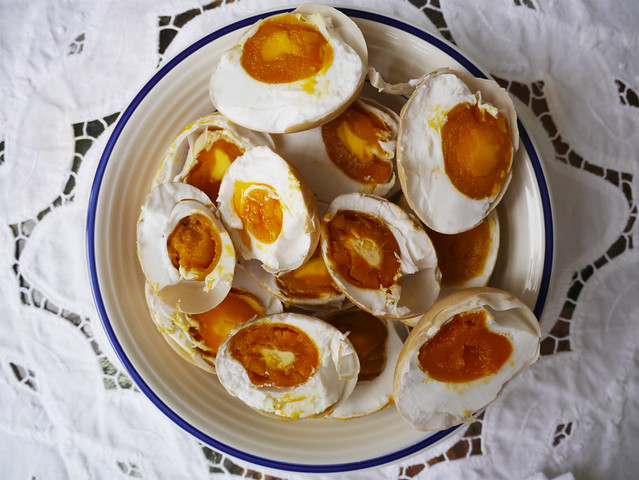
Ding ding! It is time – time to open up the glass jar and inspect to see if the salted duck eggs are ready to eat, that is. Today marks the 32nd day anniversary of when the duck eggs were preserved in their jar, which you can read more about here.
The length of preservation time for salted duck eggs varies depending on the type/size of eggs used, how much salt was added to the brine solution and of course, how “salty” you want the eggs to taste, but around the 30 day mark is a good time to inspect/review them.
Just as well, because today, the cooked salted duck eggs looked and tasted wonderful – full of china white salty egg white/albumen and decadently rich gritty oily amber egg yolk. Mamma mia – they tasted so delicious! More on that later.
To this date, the jar of salted duck eggs has been safely stored and resting in a cool kitchen cupboard, mostly undisturbed, albeit a few inspections now and then.
Interestingly, on the exterior of the jar, especially around the lid, a copious amount of salt crystals had formed, resulting in a saline exoskeleton and looking rather scientific, and worthy of a few close-up snaps! I believe that this occurred because during the preservation process – pressure has caused the concentrated brine solution to expand/rise and seep/escape out of the jar via the lid gaps, resulting in the formation of this awesome delicate alienesque sculpture.
Anyhow, the salt crystallization looks impressive and I believe it is harmless and has not affected the preservation process or eggs in any negative way. I think it is simply a result of excess brine in the jar.
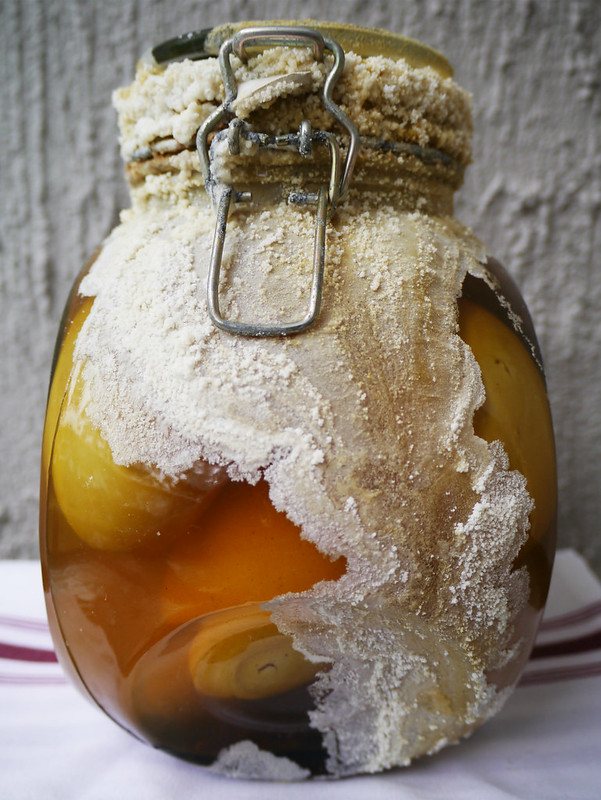
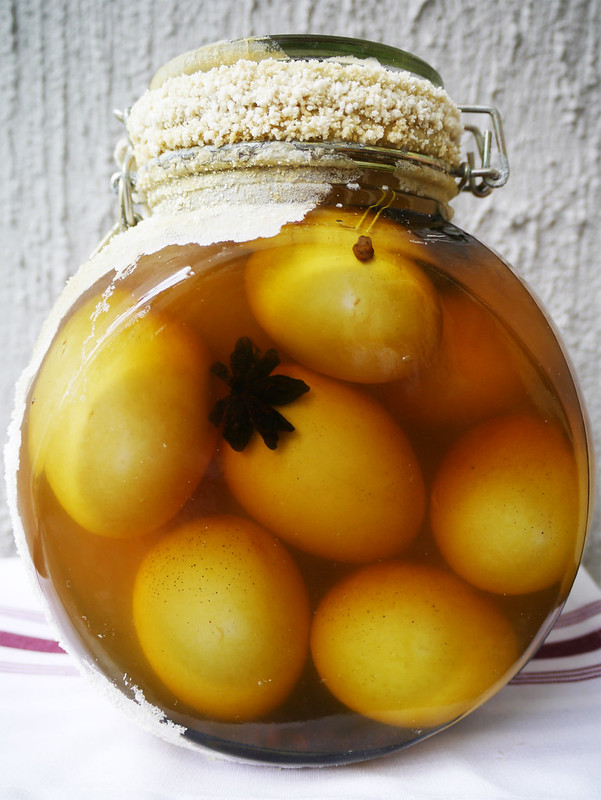
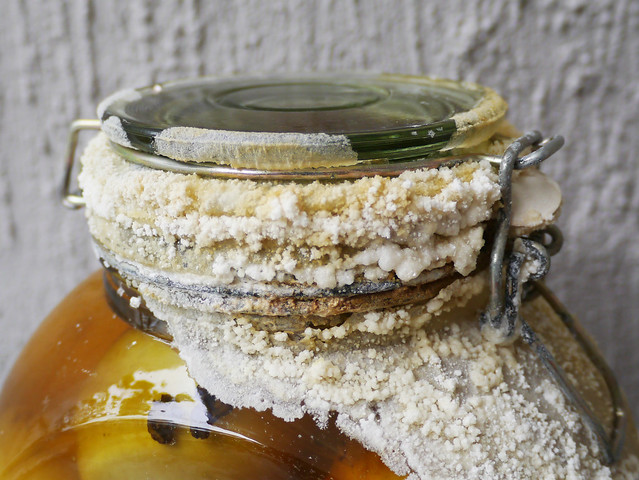
Pure aromatics and Shaoxing wine infused salt crystals!
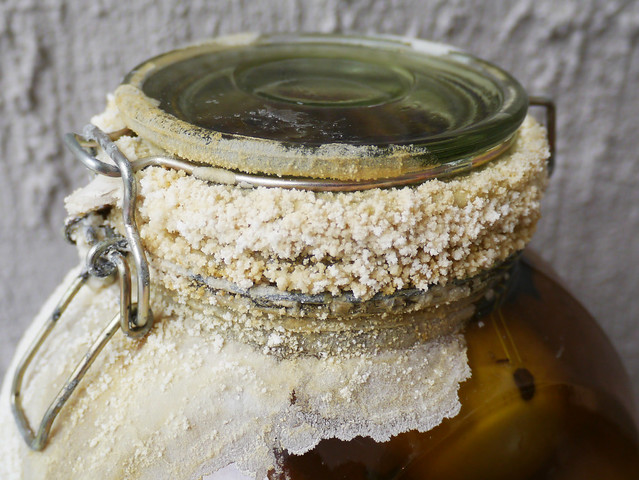
After removing 6 Muscovy and 2 Call duck eggs from the jar to taste test/sample, I noticed that their shells have been stained by the spices/Shaoxing wine mix which did not rub off easily with my fingers. I placed the eggs into a wok of hot water (in which they floated) and gently boiled them on medium-high heat for about 25 minutes.
When the eggs were ready, I placed them in a bowl under a tap of cool running water to cool them down. By this time, the egg shells had taken another new appearance – this time, a light brown/beige complexion, reminiscent of chicken eggs – odd I know.
When the eggs were cooled (cool enough to handle) – for demonstrative purposes, I cutt them in half, lengthways (with their shells on) to reveal incredibly white egg white, and rich golden gritty oily egg yolks on all the eggs. 1
The egg white of the Muscovy duck eggs tasted perfectly salty to me, and the egg white of the Call duck eggs tasted slightly saltier. The egg yolk of both eggs tasted amazing! Rich, oily, creamy, gritty and simply delicious/decadent and they were of the most vibrant/alluring amber/orange colour! I believe that the aromatics/Shaoxing brine mix had worked wonders on the egg yolk, giving them an extremely tasty/complex flavour.
Some of the egg yolks had a firm lighter coloured center in them. I’m not too certain why this was the case but I think it’s because the brine solution did not reach their centers completely, and longer preservation time would ensure a complete/consistent texture in all the egg yolks. Although, personally, I’m glad that I inspected and cooked the eggs when I did because I prefer the egg whites to not be any saltier.
The duck eggs were a success and turned out as I had hoped, and I’m extremely happy with the saltiness (not inedibly salty) of their egg whites. They would make perfect accompaniments for any meal, including congee/tom khao, etc, or served quartered as a side dish or used in salads, or cooked with pasta in a creamy mushroom sauce, which is what I did (recipe coming soon).
Homemade salted duck eggs tastes delicious and I hope you can find the time to make them. The recipe is super easy to follow and the results are extremely rewarding too. Enjoy!
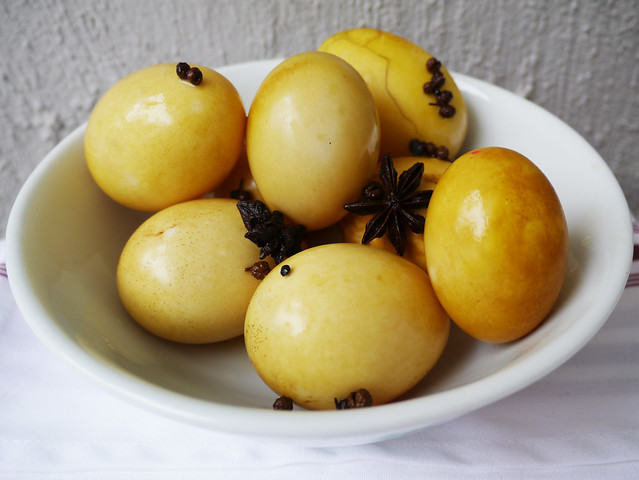
One egg (at the back) with cracked shell which occurred during preservation time in the jar – there were no leakage from the egg. I think it became more “salted” than the other uncracked eggs – ie: saltier egg white and oilier egg yolk.
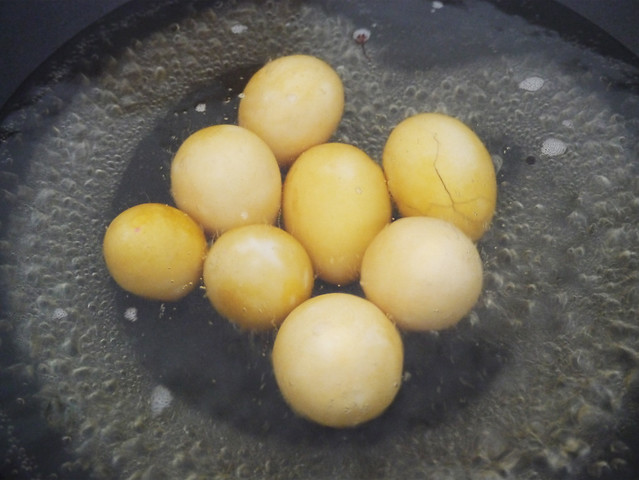
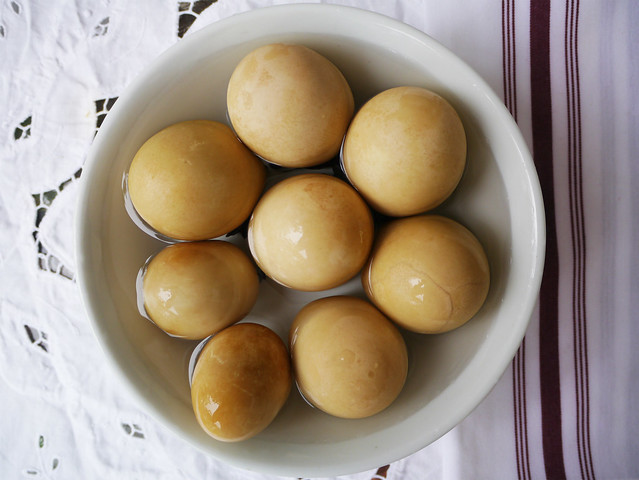
Cooling salted duck eggs looking like chicken eggs.
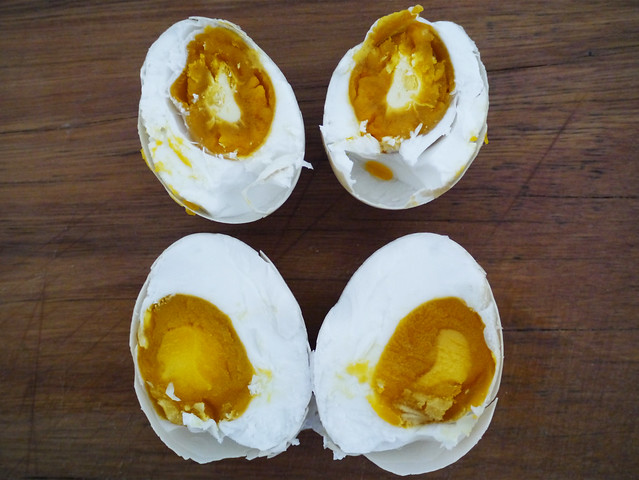
As a comparison, the top egg is a Call duck egg and the bottom egg is a Muscovy duck egg. Both look similar, although the egg white of the Call duck egg tastes a little saltier.

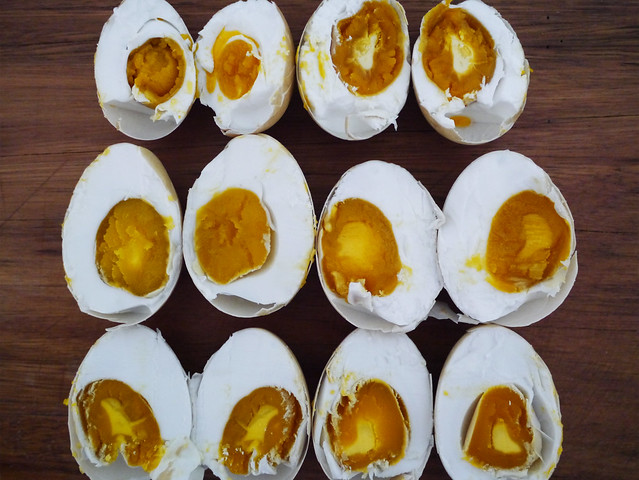
Two call duck eggs at top row and four Muscovy duck eggs at bottom rows.
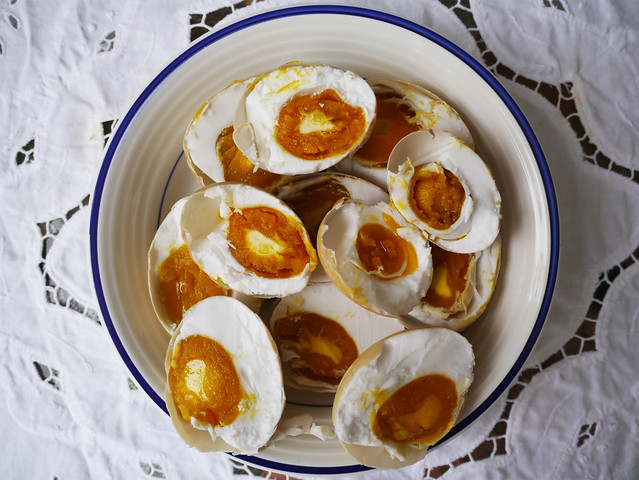
The egg yolks were a lovely deep dark amber/orange colour and extremely oily and flavoursome (a result of the aromatics and Shaoxing wine used). Notice how liquid oily the egg yolk in the middle right is?
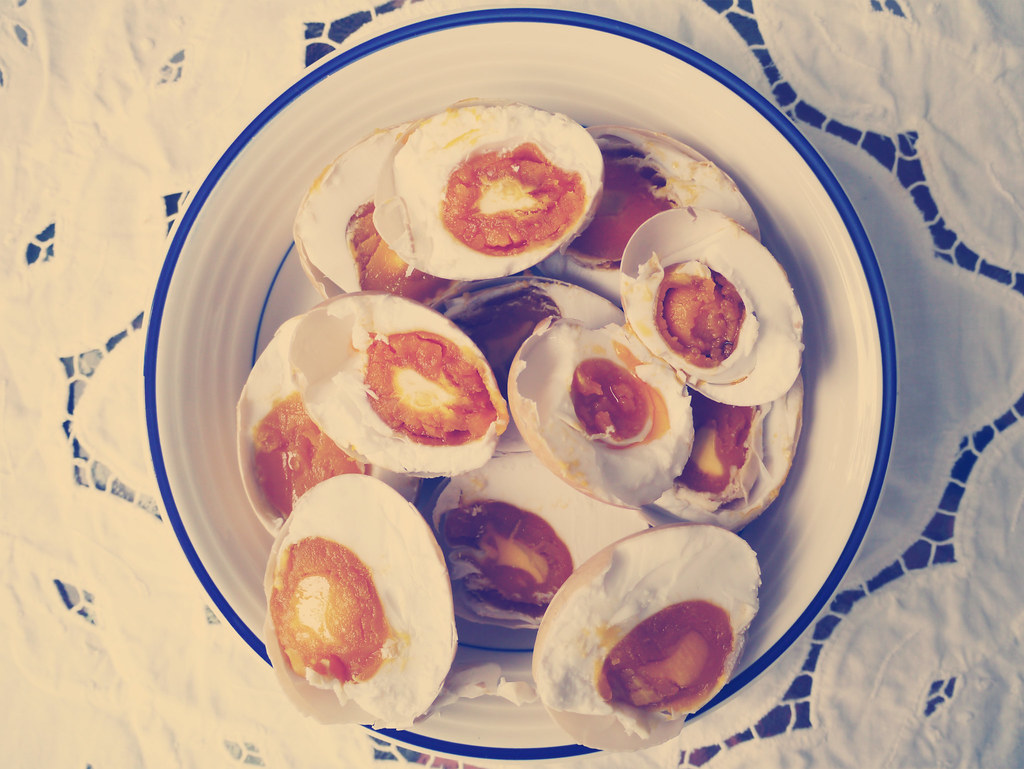
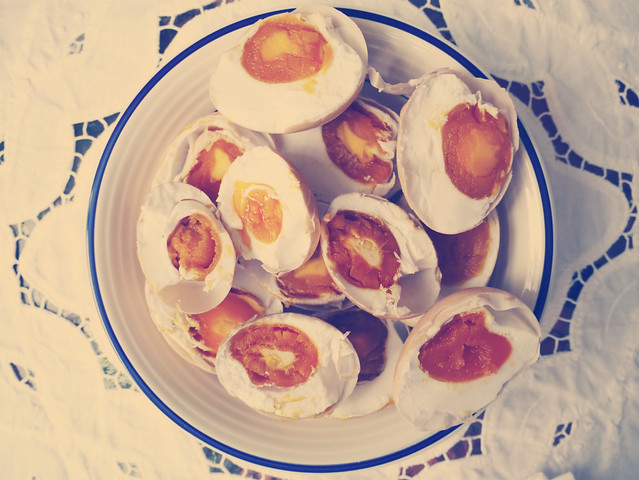
Notes:
- I recommend that you peel the duck eggs first before slicing/cutting them up and serving/using them, to ensure that no egg shells are lodged/hidden in the egg white/egg yolk. ↩